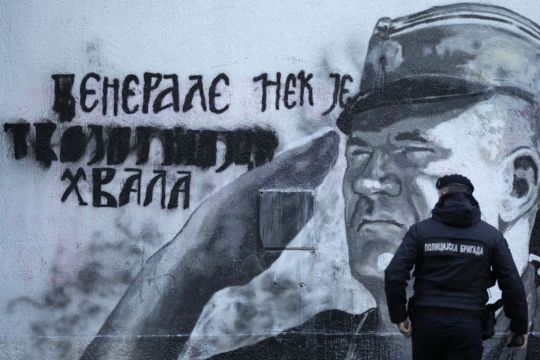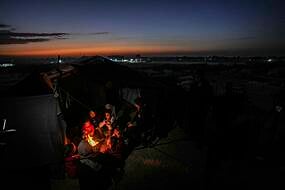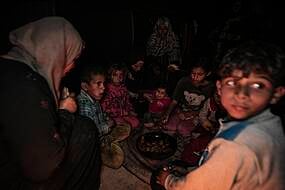A group of European parliamentarians urged the Serbian president and other government officials to stop glorifying convicted war criminals and denying genocide committed in Bosnia in the 1990s.
Their statement came two days after Serbia’s police prevented rights activists from painting over a large mural in Belgrade of convicted Bosnian Serb wartime commander Ratko Mladic.
An international war crimes court has sentenced Mladic to life in prison for genocide in the Bosnian enclave of Srebrenica in 1995, when some 8,000 Bosniaks, who are mostly Muslims, were gunned down by his troops during the war in Bosnia, the worst carnage in Europe since the Second World War.
Serbian officials have persistently denied that genocide was committed in Srebrenica, and the country’s nationalist authorities have tolerated the portrayal of convicted Serb war criminals, including Mladic, as heroes and freedom fighters.
“The (police) defence of the mural is another example of what the Government of Serbia and President (Aleksandar) Vucic think regarding reconciliation, the rule of law, democracy and regional cooperation,” the statement said.

“It is utterly unacceptable for an EU candidate country to deploy its police to protect a mural of convicted war criminal,” it added.
“We urge Serbian authorities to stop denying Srebrenica genocide and glorifying convicted war criminals.”
Police in Belgrade cited the need to prevent possible clashes between the activists and right-wing nationalists in banning the gathering at the mural to mark the International Day Against Fascism and Antisemitism.
Mr Vucic, a former ultranationalist, said on Thursday that if the police were not deployed, “those guys (Mladic’s supporters) would have run them down”.
He rejected EU criticism, saying “they literally have nothing else to do but to hate Serbs”.
The Mladic mural was restored after being briefly splashed over with white paint.
It is being guarded by hooded men in black clothes who activists believe are members of one of several extreme right organisations that have mushroomed in Serbia.







